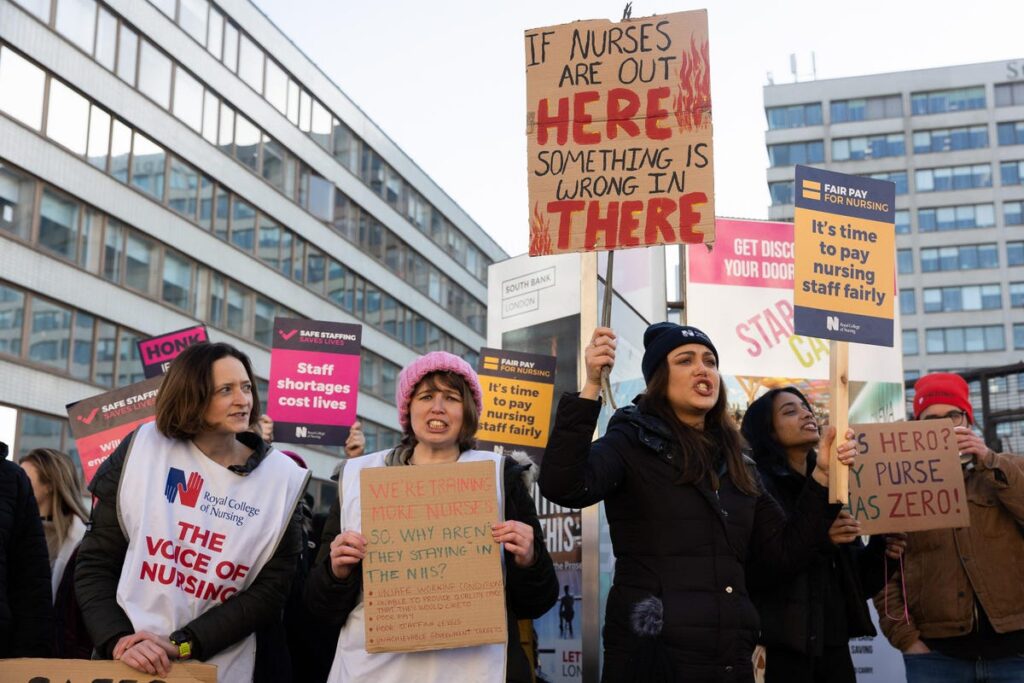LONDON, UNITED KINGDOM – 2023/02/07: Nurses hold up placards expressing their opinion during the … [+]
Nurses in England’s public health system are set to walk out for 48 hours in May after rejecting a pay deal from government.
The strike will fall over a public holiday, which can translate to higher demand for services and a thinner workforce, regardless of industrial action.
Royal College of Nurses general secretary Pat Cullen said that nursing strikes — which have been going on since December 2020 — could continue “until Christmas” if the government does not offer a satisfactory deal.
Nurses and other national health service staff including ambulance workers have now walked out several times over pay they argue has failed to keep pace with inflation.
The government recently offered them a 5% pay rise for this year and a one-off payment of around £1,655 or more, depending on existing salary. One union — Unison — voted to accept the deal.
But members of nursing union RCN voted 54% to 45% to reject it last week, despite Cullen’s recommendation they accept it. Other unions for ambulance workers are still considering the deal.
The strikes are yet another blow for England’s hospitals, who just weathered four days of industrial action from junior doctors — qualified physicians in their first few years of practice who make up nearly 40% of the medical workforce.
Doctors are paid using a different framework, so they are not eligible for the existing pay deal.
The upcoming nursing strike is due to take place from 8pm local time April 30 to 8pm May 2. Unlike previous action, it will involve nurses from emergency care and other critical areas like cancer.
Nurses will vote immediately after the strike on whether to continue performing industrial action. If they vote “yes,” they could carry on engaging in strikes for another six months.
In a letter to health secretary Steve Barclay, Cullen wrote: “Until there is a significantly improved offer, we are forced back to the picket line. Meetings alone are not sufficient to prevent strike action and I will require an improved offer as soon as possible. In February, you opened negotiations directly with me and I urge you to do the same now.
“After a historic vote to strike, our members expect a historic pay award.”
Hospital leaders have urged the government and the RCN to find ways to avoid further walk outs.
Adam Brimelow, director of communications at industry body NHS Providers said in a statement: “Safe and effective patient care, the top priority for NHS trust leaders and staff, is harder to guarantee amid escalating strikes.
“This week’s four-day walkout by junior doctors has seen hundreds of thousands of appointments and procedures postponed and staff cover spread too thinly despite trusts’ best efforts to manage the risk.
Hospital leaders understood how frustrated staff felt after experiencing real-terms pay cuts, he added.
“It’s really important that the unions and government find a way through this to prevent more strikes and let the NHS focus on its big challenges including cutting waiting lists and transforming services, instead of having to resort to ‘all hands on deck’ just to get through the day.”


